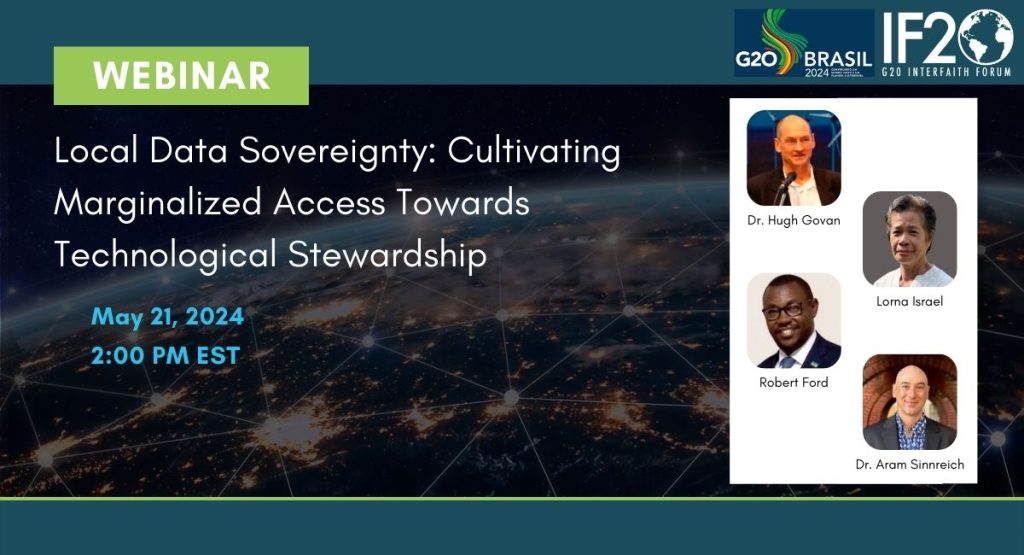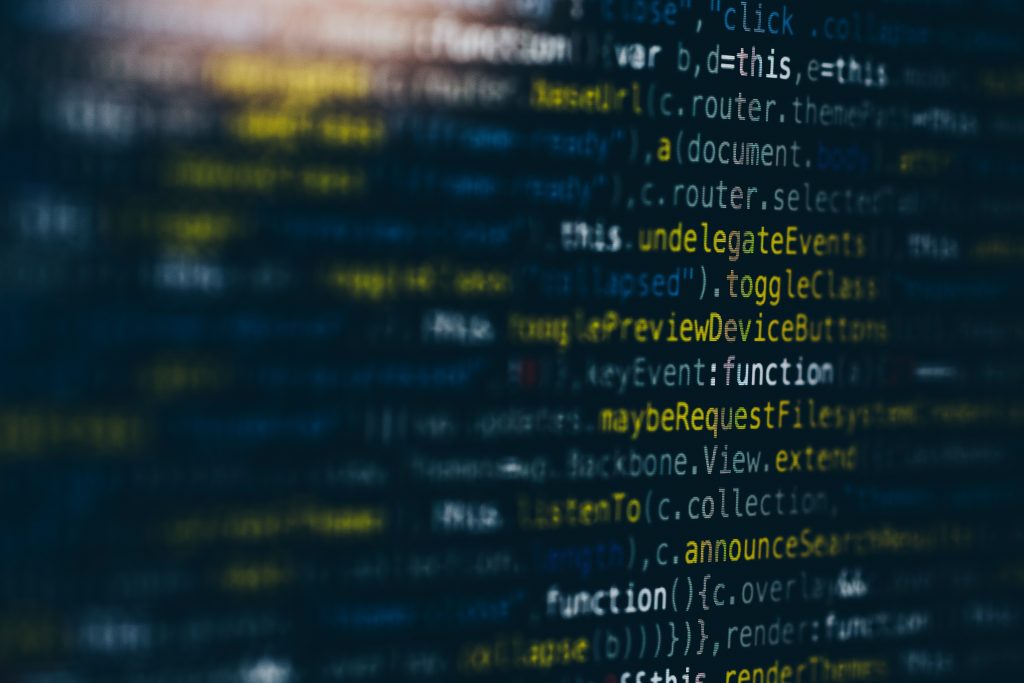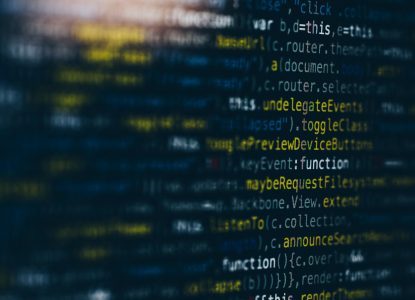By JoAnne Wadsworth, Communications Consultant, G20 Interfaith Forum
— —
On Tuesday, May 21, 2024, the IF20 Environment Working Group organized a virtual panel discussion titled “Local Data Sovereignty: Cultivating Marginalized Access Toward Technological Stewardship.” The event brought together experts to explore the ethical handling of data, particularly in marginalized communities, and the importance of respecting fundamental and spiritual values when dealing with data. Panelists included Hugh Govan, Adjunct Senior Fellow at USP’s School of Law and Social Sciences; Lorna Q. Israel from the Department of International Studies at Miriam College, Philippines; Robert Ford, representing Regional ICT Frameworks for Africa (Rwanda) at Aurasoft, FinTech; and Aram Sinnreich, media professor at American University’s School of Communication and author of “The Secret Life of Data.” Arnie Saiki, member of the IF20 Environment Working Group, served as moderator.

Saiki welcomed all participants and audience members to the webinar, introducing the issue as a complicated one with lots to unpack – even in the definition of the words “Local,” “Data,” and “Sovereignty.” After introducing the speakers, he began the discussion by presenting each speaker with a question related to their area of expertise. His first question to the panel presented the issue of “ancestral bones” in both a physical and a metaphorical sense – asking about the ethics of data collection surrounding gravesites, etc., and also painting a framework for how communities can connect to those that came before. He then turned the time over to the panelists to respond.
Aram Sinnreich
Sinnreich emphasized that the process of collecting data is not neutral, and has profound implications economically, socially, and politically. He stressed that if data is collected and analyzed wrongly, it will further empower those in power and disempower marginalized communities.
“The process of collecting data seems like a neutral one, one from which everyone benefits equally. But the way that data is collected, which data is collected, and how (or to whom) it’s made available has profound implications economically, socially, politically, and more. It is not an equal game.”
Sinnreich also discussed the concept of “triangulation,” a new AI system that brings together multiple conflicting forms of data in a multilayered answer, instead of a one-answer approach, which could help solve the current “one, godlike answer” systems of AI being utilized today that often further marginalize already-marginalized voices. He noted that while there are many interventions available, there isn’t a single solution to solve the problems related to data rights.
Lorna Q. Israel
Israel addressed the challenges of monetizing societal, cultural, and natural capital. She emphasized that while putting a monetary value on knowledge and cultural values can alert people to their importance, it becomes problematic when people have to pay to access their own digitized data.
“At the end of the day, as things are digitalized or put in repositories, if the people from which that data comes have to pay to access it, that’s a problem. These things must be freely given and freely shared.”
Israel also stressed the need for more community-oriented projects and the importance of understanding the nuanced stories behind statistics. She called for a data funding model that doesn’t rely entirely on the private sector, as digital resources are a public good.

Robert Ford
Ford discussed the critical nature of data access and the need for a multifaceted approach to ensure that data benefits humanity. Drawing from his background in Rwanda, a country with a recent history of genocide, he emphasized the importance of protecting certain types of data, such as forensic data from genocide victims, from being used for commercial purposes or being allowed into the hands of those participants in the genocide who are still alive and would like to further perpetrate harm.
“We need to look at access to this data with critical analysis and attention so we do not enable people to commit and continue to commit crimes.”
Ford advocated for the creation of data governance frameworks at the regional level, where groups of countries agree on specific frameworks for data availability and protection in their area. He also called for multistakeholder engagement to identify common challenges and share best practices.
Hugh Govan
Govan focused on the importance of preserving indigenous knowledge through traditional means, such as elders passing it on to youth, rather than relying solely on outside recording systems. He also stressed the need for protocols of engagement and social contracts regarding the handling of local information by outsiders.
“I think the knee jerk response when we raise the importance of local knowledge systems is that ‘it must be recorded before it’s lost’ — but usually it’s recorded in the systems of outsiders. I think we should preserve this knowledge through traditional means or upgraded traditional means — elders passing it on to youth, facilitating these exchanges, etc. This ensures that it’s kept inside the community.”
Additionally, Govan highlighted the importance of recognizing formal and informal tenure rights of land and nearby waters, even if they don’t exist in western laws, as they are crucial to resilience and include knowledge passed down through generations.
Conclusion
The panelists concluded the discussion with brief remarks emphasizing the importance of a multilateral, multifaceted approach to protecting and preserving data while providing access in a way that supports communities. They also stressed the need for technological sovereignty and a focus on preventing powerful actors from exploiting data.
As the world grapples with the ethical handling of data, particularly in marginalized communities, discussions like these are crucial in ensuring that cultural and spiritual values are respected while harnessing the power of data for the benefit of all.
— —
JoAnne Wadsworth is a Communications Consultant for the G20 Interfaith Forum Association.


